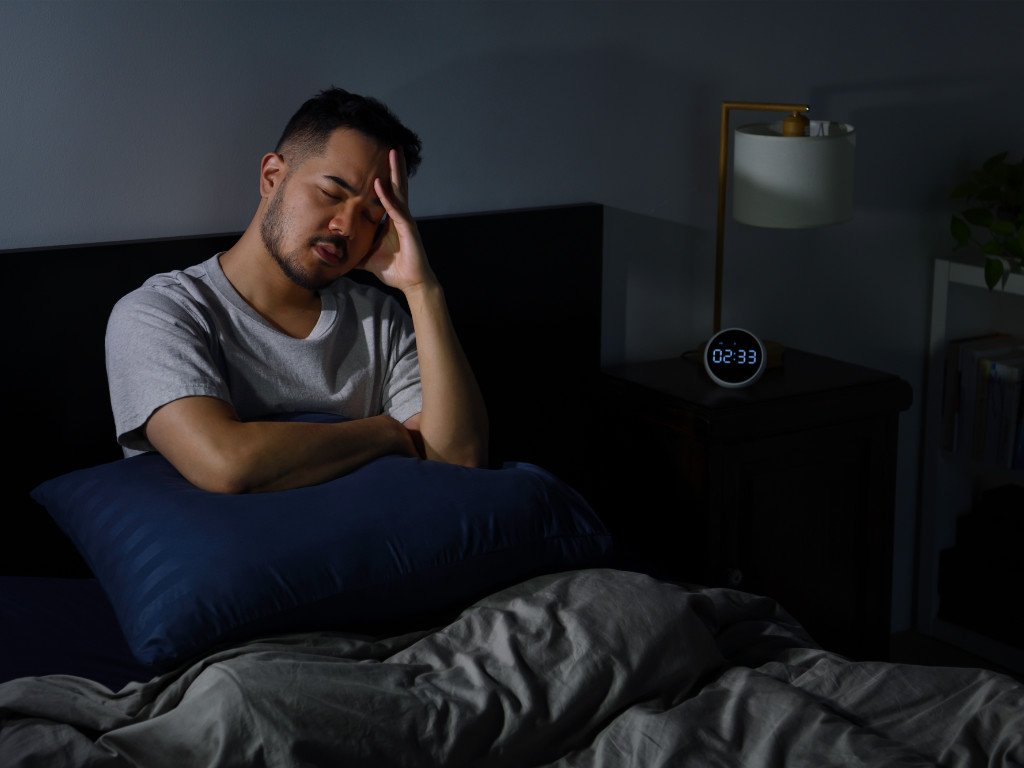Table of Contents
Ever tossed and turned all night, only to wake up feeling like you got hit by a truck? You’re not alone. Poor sleep quality affects millions of people worldwide, leaving them groggy, irritable, and struggling to get through their days. But here’s the thing – sleep quality remedies aren’t just about counting sheep or drinking chamomile tea anymore. Today’s science-backed approaches can transform your nights and revolutionize how you feel every single day.
Sleep isn’t just about closing your eyes for eight hours. It’s a complex biological process that your body desperately needs to repair, recharge, and reset. When you don’t get quality sleep, everything suffers – your mood, your productivity, your relationships, and even your physical health. The good news? There are proven remedies that can help you achieve the restorative sleep your body craves.
What Makes Sleep Quality So Important?
Sleep quality goes beyond simply counting hours in bed—it encompasses how well you sleep and is measured by factors such as how quickly you fall asleep, how refreshed you feel upon waking, and how uninterrupted your rest is. Good sleep is essential for brain performance, mood, and overall health, playing a role as important as diet and exercise in maintaining wellness.
When we don’t get enough quality sleep regularly, we face increased risks of various diseases and disorders ranging from heart disease and stroke to obesity and dementia. According to sleep experts, healthy sleep consists of three major components: sufficient quantity (getting enough hours), good quality (uninterrupted and refreshing sleep), and consistency (maintaining a regular sleep schedule).
Even if you’re getting the recommended seven to nine hours of sleep that most adults need, this doesn’t necessarily guarantee high-quality rest. Think about it – have you ever slept for eight hours but still felt exhausted? That’s poor sleep quality in action.
Understanding the Core Components of Quality Sleep
Sleep Efficiency: Your Body’s Performance Metric
Sleep efficiency refers to how much time you spend actually sleeping while in bed. Higher sleep efficiency indicates better quality rest. If you’re lying awake for hours before falling asleep or waking up multiple times throughout the night, your sleep efficiency is taking a hit.
The ideal sleep efficiency is around 85% or higher, meaning you should be asleep for at least 85% of the time you spend in bed. Poor sleep efficiency often indicates underlying issues that natural sleep remedies can help address.
Sleep Satisfaction: How You Really Feel

This is your personal assessment of how satisfied you are with all aspects of your sleep experience. It’s a subjective but important measure of sleep quality. You know that feeling when you wake up naturally, feeling refreshed and ready to tackle the day? That’s high sleep satisfaction.
On the flip side, waking up groggy, hitting the snooze button multiple times, or needing excessive amounts of caffeine to function indicates low sleep satisfaction – a clear sign you need better sleep improvement strategies.
The Hidden Benefits of Quality Sleep
Quality sleep is necessary for the body to recover from physical and psychological fatigue experienced during the day. During sleep, your brain recovers energy, processes memories and impressions, and stores new knowledge. Good sleep also supports cognitive functioning, mood, mental health, and cardiovascular, cerebrovascular, and metabolic health.
When you prioritize sleep quality, you’re essentially giving your body the tools it needs to perform optimally. It’s like charging your phone overnight – without that full charge, you’re running on empty all day.
Natural Sleep Quality Remedies That Actually Work
Creating Your Optimal Sleep Environment
Your bedroom environment plays a crucial role in sleep quality. The ideal sleep sanctuary should be cool (between 65-68°F), dark, and quiet. Sleep hygiene practices start with your physical environment, and small changes can make a massive difference.
Consider blackout curtains or an eye mask to block out light, which can interfere with your body’s natural melatonin production. White noise machines or earplugs can help mask disruptive sounds. And here’s something many people overlook – your mattress and pillows matter more than you think. If they’re old, uncomfortable, or don’t support your preferred sleeping position, they’re sabotaging your sleep quality.
The Power of Consistent Sleep Scheduling
One of the most effective sleep improvement techniques is maintaining a consistent sleep schedule. Your body thrives on routine, and your internal clock (circadian rhythm) depends on predictability to function properly.
Try to go to bed and wake up at the same time every day – yes, even on weekends. I know, I know, weekend sleep-ins feel amazing, but they can actually disrupt your sleep quality during the week. It’s like constantly changing time zones; your body never quite adjusts.
Pre-Sleep Rituals That Signal Bedtime
Creating a wind-down routine tells your body it’s time to prepare for sleep. This could include taking a warm bath, reading a book, gentle stretching, or practicing relaxation techniques. The key is consistency – doing the same activities in the same order every night trains your brain to recognize bedtime signals.
Avoid screens for at least an hour before bed. The blue light emitted by phones, tablets, and TVs can suppress melatonin production, making it harder to fall asleep. If you absolutely must use devices, consider blue light blocking glasses.
Lifestyle-Based Sleep Quality Solutions
How Diet Affects Your Sleep
What you eat and when you eat it can significantly impact your sleep quality. Heavy, spicy, or acidic foods close to bedtime can cause discomfort and disrupt sleep. Caffeine has a half-life of about 6 hours, meaning that afternoon coffee could still be affecting your sleep at midnight.
On the positive side, certain foods can actually promote better sleep. Foods rich in tryptophan (like turkey, milk, and bananas), magnesium (leafy greens, nuts, seeds), and complex carbohydrates can support natural sleepiness. A small bedtime snack combining protein and carbs – like a banana with almond butter – can help stabilize blood sugar throughout the night.
Exercise: Timing Is Everything
Regular exercise is one of the most powerful natural sleep aids available. Physical activity helps reduce stress, tire out your body, and regulate your circadian rhythm. However, timing matters enormously.
Morning or afternoon workouts can significantly improve sleep quality, but exercising within 3-4 hours of bedtime can be counterproductive. Post-workout endorphins and elevated body temperature can make it harder to wind down for sleep.
For those interested in combining proper nutrition with exercise for better overall health, check out our guide on balanced diet guidelines that support both fitness goals and quality sleep.

Stress Management for Better Sleep
Chronic stress is one of the biggest enemies of quality sleep. When your mind is racing with worries, to-do lists, or anxieties, falling asleep becomes nearly impossible. Stress reduction techniques aren’t just good for your mental health – they’re essential for sleep quality.
Consider incorporating meditation, deep breathing exercises, or journaling into your evening routine. Even five minutes of mindfulness before bed can help quiet a busy mind. Progressive muscle relaxation, where you systematically tense and release muscle groups, can help release physical tension that accumulates throughout the day.
If stress management is a constant struggle in your life, our comprehensive stress management techniques guide offers practical strategies that can improve both your daily well-being and sleep quality.
Advanced Sleep Quality Remedies
Understanding Sleep Cycles and Optimization
Your sleep isn’t just one long period of unconsciousness – it cycles through different stages approximately every 90 minutes. Understanding these cycles can help you optimize your sleep quality. The four stages include light sleep, deep sleep, and REM (Rapid Eye Movement) sleep.
Deep sleep is when your body does most of its physical repair work, while REM sleep is crucial for mental processing and memory consolidation. Waking up during lighter sleep phases typically leaves you feeling more refreshed than waking during deep sleep phases.
Some people find success using smart alarms that track sleep cycles and wake you during lighter sleep phases. While not perfect, these can be helpful tools in your sleep optimization arsenal.
Natural Supplements and Sleep Quality
While lifestyle changes should always be your first line of defense, certain natural supplements can support better sleep quality when used appropriately. Melatonin is probably the most well-known, helping regulate your circadian rhythm, especially useful for shift workers or those dealing with jet lag.
Magnesium supplements can help relax muscles and calm the nervous system. L-theanine, found in tea, promotes relaxation without drowsiness. Valerian root has been used for centuries as a natural sleep aid, though scientific evidence is mixed.
Always consult with a healthcare provider before starting any supplement regimen, especially if you take other medications or have health conditions.
Technology and Sleep Quality
While we often think of technology as the enemy of good sleep, when used correctly, it can actually support better sleep hygiene. Sleep tracking devices can provide insights into your sleep patterns, helping you identify what factors improve or harm your sleep quality.
Smart thermostats can automatically adjust your bedroom temperature for optimal sleep conditions. Some people benefit from apps that provide guided meditations, sleep stories, or ambient sounds designed to promote relaxation.
However, remember that the goal is better sleep, not perfect data. Don’t let sleep tracking become another source of stress or anxiety.
Addressing Common Sleep Quality Challenges
What to Do When You Can’t Fall Asleep
Racing thoughts, physical discomfort, or general restlessness can make falling asleep feel impossible. The 20-minute rule is a helpful guideline: if you can’t fall asleep within 20 minutes, get up and do a quiet, relaxing activity until you feel sleepy again.
Staying in bed tossing and turning can create negative associations between your bed and wakefulness. This is the opposite of what you want – your bed should be a trigger for sleepiness, not frustration.
Dealing with Night Wakings
Waking up during the night is normal, but frequent or prolonged wakings can significantly impact sleep quality. If you wake up, avoid checking the time (which can cause anxiety) or reaching for your phone (blue light exposure).
Practice the same principles as trying to fall asleep initially – keep the room dark, stay relaxed, and avoid stimulating activities. If you’re awake for more than 20-30 minutes, consider getting up briefly for a calm activity before returning to bed.

Morning Grogginess Solutions
If you consistently wake up feeling groggy despite getting adequate sleep hours, several factors might be at play. You might be waking up during a deep sleep phase, or you might not be getting quality sleep despite the quantity.
Morning light exposure can help reset your circadian rhythm and reduce grogginess. Even five minutes outside or near a bright window can help signal to your body that it’s time to be awake and alert.
For those dealing with persistent fatigue despite good sleep habits, it’s worth exploring whether underlying health issues might be affecting sleep quality. Our general health guide covers various factors that can impact energy levels and overall well-being.
Creating Your Personalized Sleep Quality Plan
Identifying Your Sleep Quality Baseline
Before implementing changes, it’s helpful to understand your current sleep patterns and quality. Keep a sleep diary for a week or two, noting when you go to bed, how long it takes to fall asleep, how often you wake during the night, what time you wake up, and how you feel in the morning.
Also note external factors like caffeine intake, exercise timing, stress levels, and evening activities. This baseline will help you identify patterns and track improvements as you implement sleep quality remedies.
Gradual Implementation for Lasting Change
Don’t try to overhaul your entire sleep routine overnight. Pick one or two changes to focus on first, whether that’s establishing a consistent bedtime, creating a wind-down routine, or optimizing your sleep environment.
Give each change at least a week or two to show results. Sleep quality improvements often take time to manifest, and your body needs time to adjust to new routines.
When to Seek Professional Help
While many sleep quality issues can be improved with lifestyle changes and natural remedies, some situations warrant professional evaluation. Persistent insomnia, loud snoring, gasping during sleep, or excessive daytime sleepiness despite adequate sleep time could indicate underlying sleep disorders that require medical attention.
Don’t hesitate to discuss sleep concerns with your healthcare provider. Sleep is too important to your overall health to ignore ongoing problems.
Frequently Asked Questions About Sleep Quality Remedies
How long does it take for sleep quality improvements to show results?
Most people begin noticing improvements within 1-2 weeks of consistently implementing good sleep hygiene practices. However, significant changes in sleep quality can take 4-6 weeks to fully manifest. Be patient with the process and consistent with your new habits.
Can diet really affect my sleep quality that much?
Absolutely. What and when you eat can significantly impact sleep quality. Large meals, spicy foods, or alcohol close to bedtime can disrupt sleep, while foods rich in tryptophan, magnesium, and complex carbohydrates can support better rest. The timing of caffeine intake is particularly crucial.
Is it normal to wake up during the night?
Brief awakenings during the night are completely normal and part of natural sleep cycles. Most people experience 3-5 brief awakenings per night but don’t remember them. It becomes problematic when you’re awake for extended periods or these awakenings leave you feeling unrested.
What’s the biggest mistake people make when trying to improve sleep quality?
The biggest mistake is trying to change everything at once or expecting immediate results. Sleep quality improvement is a gradual process that requires consistency and patience. Focus on one or two changes at a time and give them adequate time to work.
Are natural sleep remedies as effective as sleep medications?
For many people dealing with occasional sleep issues or poor sleep hygiene, natural remedies can be highly effective and don’t come with the dependency risks or side effects of sleep medications. However, chronic insomnia or sleep disorders may require medical intervention. Natural approaches work best when addressing lifestyle and environmental factors contributing to poor sleep quality.
Building Long-Term Sleep Success
Remember that sleep quality remedies aren’t one-size-fits-all solutions. What works brilliantly for your friend might not work as well for you, and that’s perfectly normal. The key is experimenting with different approaches while maintaining consistency with the basics – regular sleep schedule, comfortable environment, and good sleep hygiene.
Think of improving sleep quality as an investment in every other aspect of your health and life. Quality sleep supports everything from immune function to emotional regulation, from cognitive performance to physical recovery.
As Thomas Dekker aptly described sleep as “the golden chain that ties health and our bodies together,” highlighting the interconnected nature of sleep with overall wellness. When you prioritize sleep quality, you’re not just improving your nights – you’re enhancing your entire life.
The journey to better sleep quality might take some patience and experimentation, but the payoff is enormous. Better mood, improved focus, enhanced physical performance, and stronger resilience to stress are just some of the benefits waiting for you on the other side of quality sleep.
For those looking to complement their sleep improvement efforts with other wellness strategies, consider exploring our guides on mental and emotional wellness and natural anxiety management, as mental health and sleep quality are deeply interconnected.
Start tonight. Pick one small change you can implement immediately, and begin your journey toward the restorative, refreshing sleep your body deserves. Your future self will thank you for taking this important step toward better health and well-being.



2 comments
[…] If you’re someone who lies awake replaying the day’s events or worrying about tomorrow’s to-do list, mindfulness can be a game-changer. The practice helps quiet the mental chatter that often keeps us awake. Plus, the stress reduction benefits naturally translate into better sleep quality. […]
[…] snacks have been shown to help with weight management, muscle preservation, and even improved sleep quality when consumed as part of a balanced […]